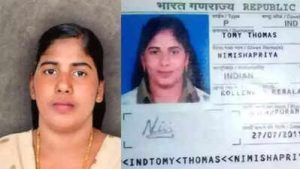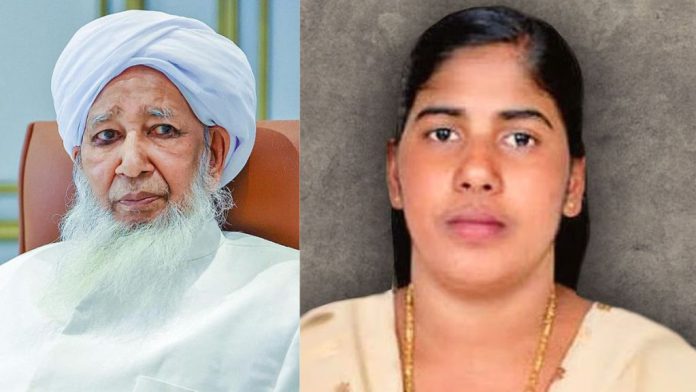Qisas demand by victim’s family halts all reconciliation efforts for Indian nurse Nimisha Priya, sentenced to death in Yemen. Despite global diplomatic interventions, the family refuses blood money or pardon.
Qalam Times News Network Exclusive
Qisas—the Islamic principle of retributive justice—has emerged as the central and immovable demand from the family of Talal Abdo Mahdi, the Yemeni national allegedly murdered by Indian nurse Nimisha Priya in 2017. Despite massive diplomatic, legal, and religious interventions, the victim’s family continues to reject all overtures for forgiveness, firmly standing by the Quranic doctrine of “an eye for an eye.”
Last-Minute Reprieve, But No Relief
Nimisha Priya’s scheduled execution in Yemen—originally slated for Wednesday—was deferred after an intense series of negotiations involving Indian government officials, international legal channels, and religious leaders including Sheikh Abubakr Ahmad, also known as Kanthapuram A.P. Aboobacker Musliyar, the Grand Mufti of India. His personal intervention, grounded in the Islamic legal mechanism of diyah (blood money), helped delay the death penalty, though her fate remains in peril.

Family of Victim Firm on Qisas, Rejects Diyah
While Yemen’s Islamic criminal code provides for clemency through Qisas and allows for forgiveness via monetary compensation (diyah), Talal Mahdi’s family has categorically rejected every proposal for reconciliation. In a strongly worded public statement, Talal’s brother Abdelfattah Mahdi dismissed the deferral of execution as a political maneuver, vowing, “Qisas will be done. No pressure will shake us. Blood cannot be bought.”
Religious and Diplomatic Channels Exhausted
Numerous appeals have been made by Indian political leaders across party lines, as well as prominent Keralite philanthropist M. A. Yusuff Ali, who has offered to provide full financial support for any acceptable diyah arrangement. However, the family’s rejection of this Islamic provision indicates a hardened resolve to see justice served strictly through Qisas, without compromise.
Who Is the Grand Mufti Behind the Reprieve?

Sheikh Abubakr Ahmad, widely acknowledged as India’s Grand Mufti and the general secretary of the All India Sunni Jamiyyathul Ulama, has played a crucial role in brokering dialogue. Utilizing his religious stature and diplomatic ties, including connections within Yemen’s Shoora Council, he succeeded in securing a temporary stay of execution. However, he too acknowledges that “the ultimate decision rests with the victim’s family.”
The Case That Shook Two Nations
Nimisha Priya, a nurse from Kerala, moved to Yemen in 2008 and later opened a clinic. In 2017, after a dispute with her business partner, she allegedly administered a sedative to Mahdi in an attempt to recover her passport. The dosage proved fatal, and in an act that shocked both nations, she and a fellow nurse reportedly dismembered the body and concealed it in a water tank. Convicted in 2018 and sentenced to death in 2020, her legal appeals were exhausted in November 2023 when Yemen’s Supreme Judicial Council upheld the death penalty but left room for clemency through diyah.
The Quranic Basis of Qisas and Its Limits
The principle of Qisas is deeply rooted in Islamic jurisprudence, with the Quran stating:
“O you who believe, equivalence is the law decreed for you when dealing with murder… But if one is pardoned by the victim’s kin, equitable compensation shall be paid.”
This provides room for mercy and reconciliation. Yet, in the absence of consent from the aggrieved family, retributive justice remains legally and morally binding under Yemen’s Sharia-based legal system.
A Precarious Future Hinges on Qisas
While the deferment has offered Nimisha Priya a brief window of hope, the unwavering demand for Qisas by Talal Mahdi’s family keeps her fate in a precarious balance. Until and unless the family relents—an outcome that appears unlikely—her life remains tethered to the uncompromising dictates of retributive justice.







